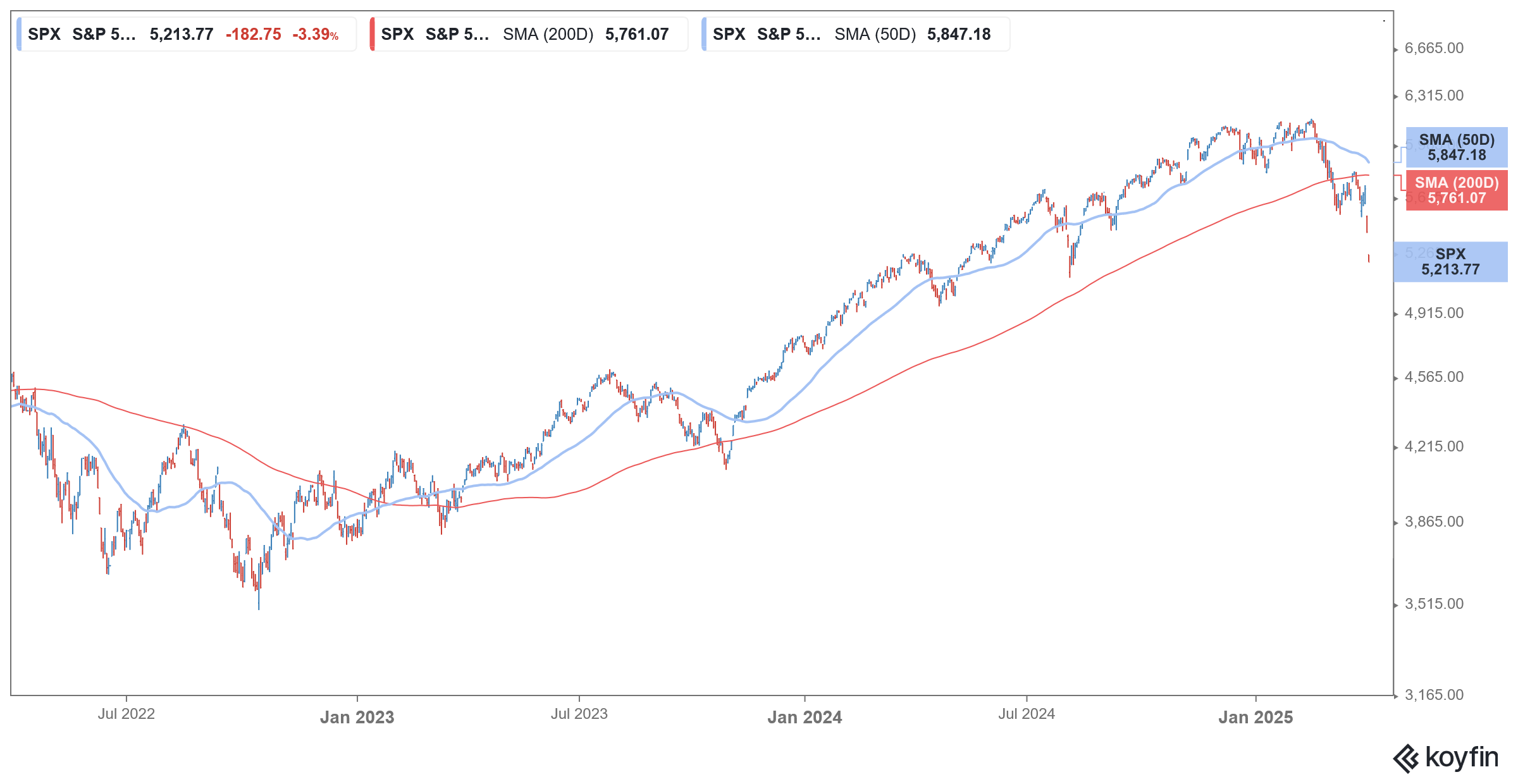Economists Warn of Recession After Donald Trump’s Reciprocal Tariffs
Please note that we are not authorised to provide any investment advice. The content on this page is for information purposes only.
US President Donald Trump announced reciprocal tariffs on April 2 as he had vowed. Meanwhile, several economists have warned of a recession amid the escalating global trade war.
JPMorgan for instance has raised the odds of a US recession this year to 60% as compared to 40% before the tariff announcement. In his note, Bruce Kasman, head of global economic research said, “These policies, if sustained, would likely push the US and possibly global economy into recession this year.”
He added, “The current positioning of the US and global expansion points to limited vulnerability that might suggest a relatively mild downturn. But recessions are inherently unpredictable.”
Allianz’s Chief Economic Advisor Mohamed El-Erian has also warned about the growing risk of a recession. “You’ve had a major repricing of growth prospects, with a recession in the U.S. going up to 50% probability, you’ve seen an increase in inflation expectations, up to 3.5%,” said Erian speaking with CNBC on the sidelines of the Ambrosetti Forum in Cernobbio, Italy.
He added, “I don’t think [a U.S. recession] is inevitable because the structure of the economy is so strong, but the risk has become uncomfortably high.”
Trade War Could Lead to a Global Recession
Trump’s tariffs might lead to a global trade war with China announcing retaliatory tariffs on US goods. Meanwhile, there are fears that the escalating trade war might lead to a global recession. “This is a game changer, not only for the U.S. economy but for the global economy,” said Olu Sonola, Fitch Ratings’ head of U.S. Economic Research. Sonola added, “Many countries will likely end up in a recession.”
Some Economic Indicators Signal a Recession
Notably, several retail companies have warned that the tariffs would lead to lower consumption. There are multiple indicators that show a softening of the US economy after the stellar growth in 2024.
US consumer confidence fell to 92.9 last month which is 7.2 points lower than the previous reading and marks the fourth consecutive monthly fall. Moreover, the measure for future expectations fell to 65.2 which is the lowest reading in 12 years and below the 80 level that economists consider a signal for a recession.
Meanwhile, the Fed does not see the US economy headed toward a recession. Speaking at the US Monetary Policy Forum earlier this month, Fed chair Jerome Powell began his speech by saying, “Despite elevated levels of uncertainty, the U.S. economy continues to be in a good place.”
Powell acknowledged that “recent surveys of households and businesses point to heightened uncertainty about the economic outlook.”
He however added, “It remains to be seen how these developments might affect future spending and investment. Sentiment readings have not been a good predictor of consumption growth in recent years.”
CFOs Are Worried About a Recession
Notably, surveys done prior to Trump’s tariff announcement also showed rising fears of a recession. In the quarterly CNBC CFO Council Survey, the majority of chief financial officers said that they expect the US economy to enter a recession in the back half of 2025. Overall, 60% of CEOs in that survey said that they see a recession in the second half of 2025 while another 15% predict one next year.
The majority of respondents said that they were “somewhat pessimistic about the overall state of the U.S. economy.” However, CFOs don’t see a major slowdown on the horizon and 50% believe the recession would be “moderate” and another 40% see it as “mild.”
“I feel the current administration is seeing how far they can push before anything breaks. I am hopefully after the first 100 days that things will moderate,” said one CFO. Notably, 30% of respondents listed Trump’s trade policy as the primary reason for the new economic downturn base case.
Separately a Deutsche Bank survey shows a nearly 50-50 chance of a recession. UCLA Anderson Forecast has also recently issued its first-ever recession watch amid concerns over Trump’s policies.
Jeremy Siegel Says Calls Tariffs a Policy Mistake
While Trump sees tariffs as a tool to address the country’s burgeoning trade and budget deficit, many economists believe that they would only end up raising costs for Americans. Jeremy Siegel, professor at University of Pennsylvania’s Wharton School said “I think this is the biggest policy mistake in 95 years.”
He added, “I don’t know why Trump didn’t learn the lesson of the Smoot–Hawley Tariff [Act], because I know the [Federal Reserve] learned the lesson of its mistakes in 1930, ’31 and ’32. That’s one reason why the great financial crisis did not turn into a Great Depression. We flooded the banks with liquidity, which we did not do 95 years ago.”
Siegel said that recession odds will rise above 50% if these tariffs stay. He however added, “If he removes it, we won’t have a recession. We’ll have a slowdown.”
Siegel noted that tariffs would not serve the desired purpose and said, “If we did eliminate all tariffs … we would still have the U.S. [with] a trade deficit with the rest of the world, and so this idea that … is stuck in Trump’s head that a trade deficit is inherently bad is just absolutely wrong on every single measure.”
In one of his previous interviews, Trump said that he cannot “guarantee” that his tariffs won’t hurt Americans. Even the legendary Warren Buffett took a swipe at the tariffs saying, “Over time, they are a tax on goods. I mean, the tooth fairy doesn’t pay ’em!”
Global Stocks Crash
Meanwhile, global stocks have crashed following Trump’s tariffs and Dow Jones is down around 1,000 points in early trade today. US stocks had crashed in 2018 also after Trump imposed massive tariffs on China. This time around, he has targeted over 180 countries with a minimum tariff of 10%.






